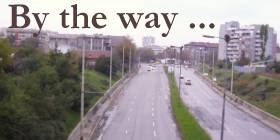
|
1. The Real Colonel Bogey
|
'Colonel Bogey' is arguably the most famous march ever written. It is certainly the
most profitable. First published in 1914 - a portentious year for marches if ever there
was one - it quickly made the best-seller sheet music lists. By the early Thirties it
had sold well over a million copies, had been recorded innumerable times and had already
begun clocking up useful performing rights from the BBC. Even better, in 1958 it was
chosen as the theme tune for the splendid film The Bridge on the River Kwai - and
the mind boggles over the financial implications of that.
It is of course a fine march whose opening has proved totally irresistible for the
best part of a century. Its composer was Lieutenant F J Ricketts (1881-1945), a
military bandmaster who was Director of Music for the Royal Marines at Plymouth.
Because at that time Service personnel were not encouraged to have professional lives
in the great big world outside, Ricketts published 'Colonel Bogey' and his other
compositions under the pseudonym Kenneth Alford.
So much for the composer -- but who in fact was Colonel Bogey? The story goes that
this was a nickname by which a certain fiery colonel was known just before the 1914
War when Ricketts was stationed at Fort George near Inverness in Scotland. One of the
composer's recreations was playing golf and it was on the local course that he sometimes
encountered the eccentric colonel. One of the latter's peculiarities was that instead
of shouting 'Fore' to warn of an impending drive, he preferred to whistle a descending
minor third. This little musical tag stayed and germinated in the mind of the receptive
Ricketts -- and so the opening of a memorable march was born.
One wonders if the two men ever met again. If so, let us hope that the composer at
least stood the Colonel a generous double at the Nineteenth Hole.
Copyright © Richard Graves, April 7th 1999
 MORE STORIES FROM RICHARD GRAVES
RICHARD GRAVES (1926-2002)
EXPLORE CLASSICAL MUSIC DAILY
BBC FEATURE, WITH COLONEL BOGEY REAL AUDIO
MORE STORIES FROM RICHARD GRAVES
RICHARD GRAVES (1926-2002)
EXPLORE CLASSICAL MUSIC DAILY
BBC FEATURE, WITH COLONEL BOGEY REAL AUDIO
|